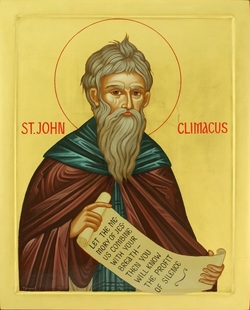
And, what is greater than all, the man who in the exercise of faith is fully united to God has rest from the fear of the divine displeasure.
John Climachus, one of the devout and learned anchorites of Mount Sinai, in referring to the inward state of a holy man with whose history he had become acquainted, represents the divine grace to have been so marked and powerful in its operations as to have taken away from him apparently even the fear of God. Although such expressions are liable to be misunderstood, it is beyond question that they are susceptible of a meaning which involves an important truth. It is a universal truth, applicable in all times and situations, and not a particular truth limited to specific cases, that "perfect love casts out fear." Love and fear, in their very nature, are antagonistical principles. Where love rules, fear is extinguished. The triumph of the one is necessarily the exclusion of the other.
But, in laying down this universal principle, we must have a regard to the meaning of terms. The fear which is based upon the consciousness of guilt, is a different thing from that fear which is synonymous with reverence. It is certain, where love is perfected in the heart, that all fear which results from sin is extinguished. In that sense of the term, or rather with that limitation of the use of the term, the holy man ceases to fear. God has no sooner merged the character of a judge in that of a friend, than the man of God delights to be with him, and to converse with him. It is no more his nature to flee from God under the influence of sinful fear, than it is the nature of an innocent child to flee from its mother. He rests, like calm and helpless infancy, on the arm that is wreathed with lightnings. The lightnings have no terror for innocence; but rather, divested of everything which can harm it, they shine like flowers, and play round it like sunbeams. But to those who are in a state of fear, originating in sin, they retain the terrors of their original nature, smiting with a power which rends the rocks in pieces, and burning with a consuming fire.
— edited from A Treatise on Divine Union (1851) Part 8, Chapter 5 by Thomas Cogswell Upham. You can find more of his work at the blog, The Hidden Life, managed by Craig L Adams at: http://thomascupham.blogspot.com
 RSS Feed
RSS Feed